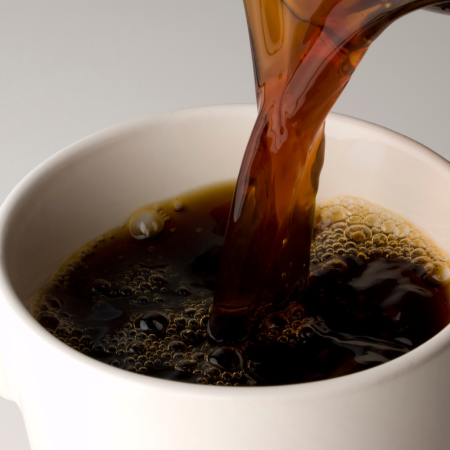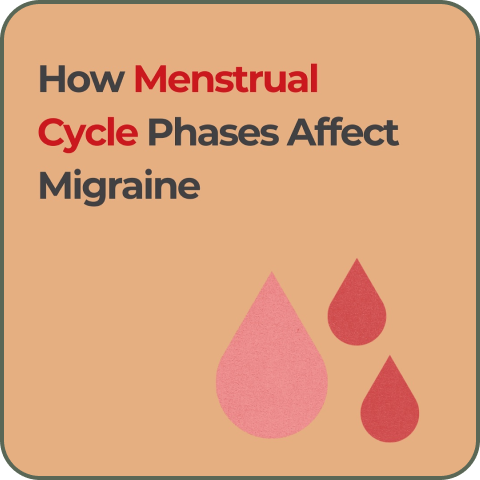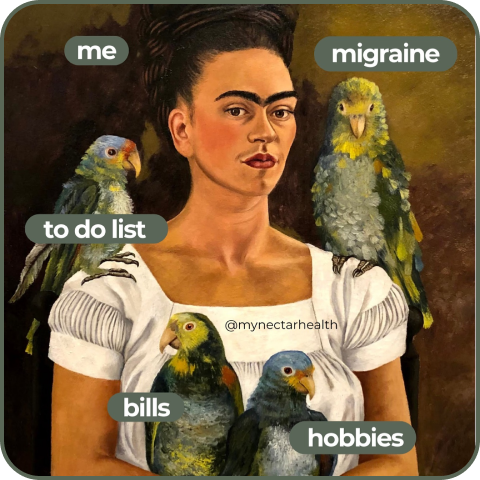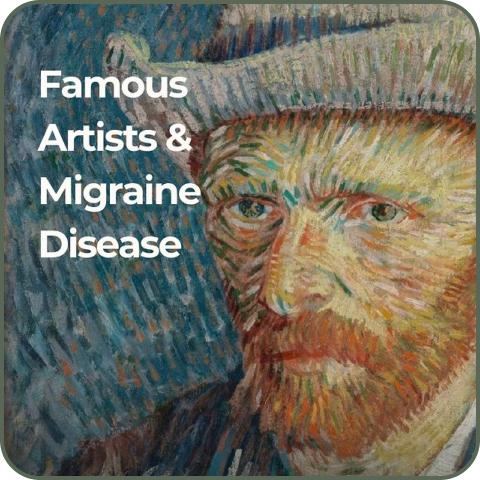Migraines are complex, and when you throw caffeine into the mix, the story becomes even more confusing. Is it helpful? Is it harmful? Should you give it up completely—or keep it in your migraine-fighting toolkit? In this blog, we’ll break down the often-overlooked connection between caffeine, hormones, and migraines, revealing what no one tells you about how caffeine affects your brain, body, and hormones. Spoiler alert: there’s no one-size-fits-all answer—but by the end, you’ll know exactly how to approach caffeine based on your personal migraine journey.
How Caffeine Helps (and Hurts) Migraines
Let’s start with the facts: caffeine is a common ingredient in many over-the-counter migraine medications. That’s because it can constrict blood vessels, providing short-term relief from migraine pain. But here’s the catch—this relief is often followed by a rebound effect that can trigger even worse migraines later on.
So, is caffeine a friend or foe? The truth lies somewhere in between. Let’s break it down from both Western medicine and Eastern medicine perspectives to get a full picture.
Western Medicine: Caffeine’s Biochemical Impact on Migraines
Here are eight critical ways caffeine influences your brain and body, especially in the context of migraines:
1. Vasoconstriction, Then Rebound
Caffeine narrows blood vessels, which may provide short-term relief. But when the effects wear off, vessels dilate suddenly—triggering a rebound headache for many migraine sufferers.
2. Adenosine Blockage
Caffeine blocks adenosine receptors, preventing the body from calming down. Over time, your brain becomes hypersensitive to the absence of caffeine, making missed doses a migraine trigger.
3. Cortisol Overload
Caffeine spikes cortisol, the body’s stress hormone. Chronic high cortisol can increase inflammation, worsening migraine symptoms over time.
4. Hormonal Disruption
Caffeine may slow the liver’s ability to break down estrogen, leading to hormonal imbalances—particularly dangerous during the menstrual cycle for people with hormone-related migraines.
5. Adrenal Fatigue
If your HPA (Hypothalamic-Pituitary-Adrenal) axis is already strained, caffeine can add pressure—leading to energy crashes, brain fog, and increased migraine frequency.
6. Nutrient Depletion
Caffeine depletes essential nutrients like magnesium, B vitamins, and potassium—all critical for migraine prevention. It also blocks magnesium absorption, compounding the issue.
7. Blood Sugar Rollercoaster
Caffeine prompts your liver to release glucose, leading to blood sugar spikes followed by crashes—bad news if you have PCOS, insulin resistance, or blood sugar-sensitive migraines.
8. Sleep Disruption
Late-day caffeine consumption interferes with melatonin production, harming sleep quality. Since poor sleep is a major migraine trigger, timing matters just as much as quantity.
Eastern Medicine: The Traditional Chinese Medicine (TCM) View on Caffeine
Traditional Chinese Medicine (TCM) has a different lens on caffeine’s role in migraines. Rather than focusing on individual chemicals, TCM considers energy flow, organ systems, and internal balance.
Caffeine & Qi Flow
Caffeine stimulates Yang energy and mobilizes Qi, especially in the Heart, Liver, and Kidney meridians. This is why it can temporarily relieve stagnation, helping some people feel better during the early stages of a migraine.
But there’s a cost: Overstimulation leads to Qi depletion, Kidney Yin deficiency, and internal Heat, all of which increase migraine vulnerability over time.
Impact on Shen (Spirit)
TCM sees caffeine as agitating to Shen, or spirit—leading to restlessness, anxiety, and insomnia. These symptoms don’t just affect your mental state—they are deeply intertwined with migraine patterns in TCM.
Liver Qi & Blood Deficiency
Caffeine worsens Liver Qi stagnation, which can transform into Liver Fire or Wind—TCM patterns linked with throbbing headaches, nausea, and dizziness. It also dries out Stomach Yin, contributing to nausea or acid reflux often seen during migraines.
What This Means for Your Migraine Management
So what’s the bottom line? Caffeine can both help and harm—depending on your unique body, hormonal profile, and migraine patterns.
When Caffeine Might Help:
- You experience cold-type migraines (tightness, fatigue, sluggish digestion)
- You benefit from quick stimulation during the early phase of a migraine
- Your migraines are linked to stagnation and low blood pressure
When Caffeine Might Hurt:
- You have hormonal migraines
- You suffer from insomnia, anxiety, or adrenal fatigue
- Your migraines worsen after withdrawal or overuse
- You have conditions like PCOS or HPA axis dysfunction
A study from the American Migraine Foundation found that those consuming three or more cups of coffee per daywere significantly more likely to experience migraines—so moderation is key.
How to Manage Caffeine if You Get Migraines
1. Know Your Threshold
Every person’s caffeine tolerance is different. Some people get a migraine from 50 mg (half a cup), while others can handle up to 200 mg (about two cups) daily. Keep a caffeine & migraine journal to track your triggers.
2. Practice Moderation
If caffeine is a possible trigger, don’t quit cold turkey. Instead:
- Reduce intake by 25% per week
- Gradually shift to green tea or low-caffeine alternatives
- Drink coffee before noon to protect melatonin and sleep quality
3. Support Your Body
If you consume caffeine:
- Supplement with magnesium
- Stay hydrated
- Prioritize quality sleep
- Avoid caffeine on an empty stomach
Conclusion: Caffeine Isn’t the Enemy—But It’s Not Always a Friend Either
When it comes to caffeine and migraines, the key is understanding your unique body. What brings relief for one person may cause chaos for another. Caffeine’s effect depends on hormonal balance, nutrient status, adrenal health, and even the time of day you consume it.
Take a balanced approach. Don’t fear caffeine—but don’t ignore its impact either. Whether you approach it from a Western medical or Eastern holistic angle, the message is clear: self-awareness + moderation = migraine empowerment.
Join the Migraine Heroes Community
💡 New podcast episodes drop every Monday and Wednesday! If you’re a migraine warrior, you’re in the right place.
📲 Download the Migraine Heroes App—the only service worldwide that teaches you how to prevent and stop migraines by adding selective foods to your diet. Start tracking and finally take control of your health!
🔗 www.migraineheroes.com
Disclaimer: This podcast is for informational purposes only and does not substitute for providing medical advice. Always consult your healthcare professional before making any health-related decisions.
For women, men, and children who suffer from migraine disease, Migraine Heroes is your go-to resource for understanding, managing, and overcoming migraine attacks.
We cover all types of migraines and related headaches, including primary and secondary migraines, chronic migraines, and cluster migraines. We dive deep into the complexities of migraine with aura and migraine without aura, as well as rarer forms like hemiplegic migraine, retinal migraine, and acephalgic migraine (silent migraine). Our discussions also extend to cervicogenic headaches, ice pick headaches, and pressure headaches, which often mimic migraine or contribute to overall migraine burden.





